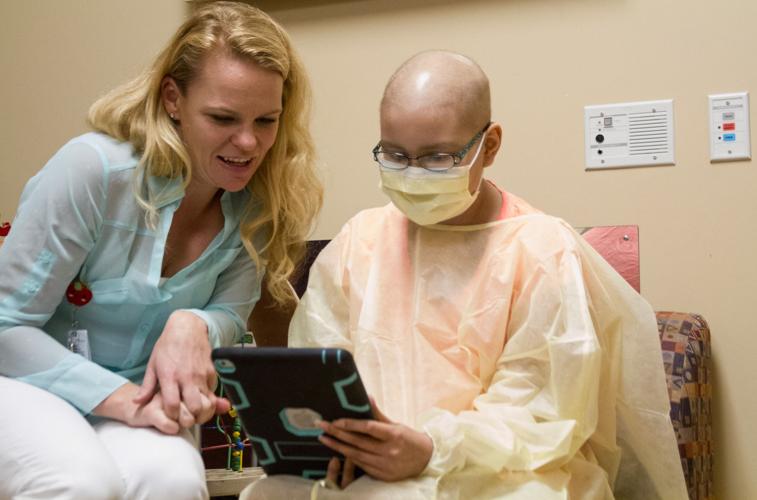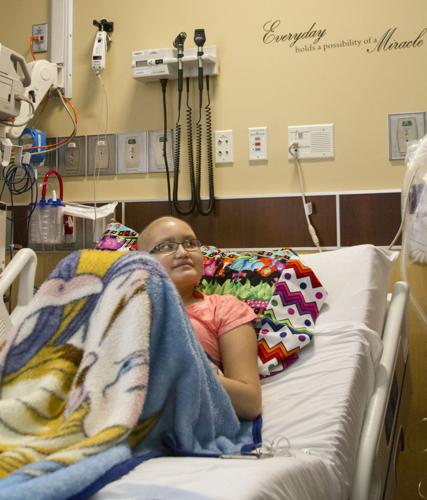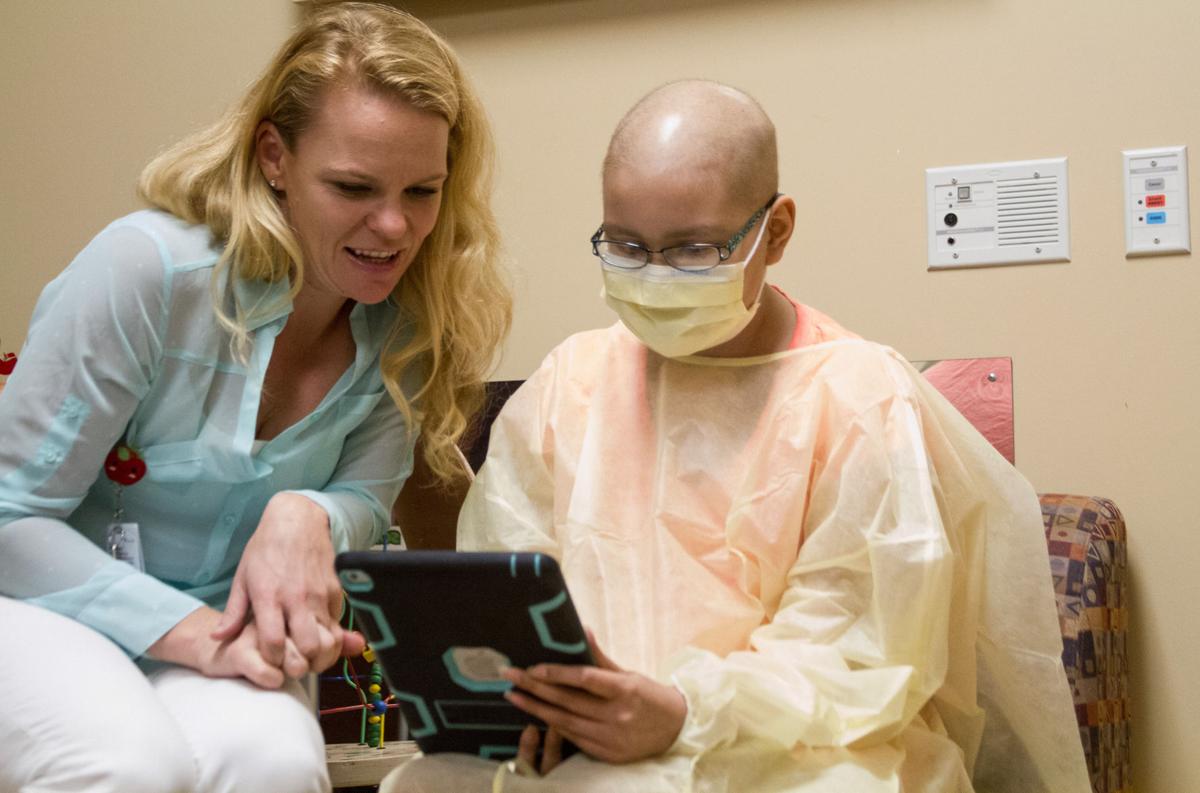Danitza Barra is an advanced math student at Sahuarita Middle School but the sixth-grader has never stepped foot on campus.
That’s because she has spent most of the last month battling leukemia at Diamond Children’s Medical Center, one of many weeks-long stints.
Though the 11-year-old struggles to keep her energy levels up, she has not skipped a beat when it comes to school work, thanks in part to a new hospital school program launched by Banner Health in partnership with the University of Arizona College of Education.
The program is the first of its kind in Tucson, pairing a certified teacher with patients while they are hospitalized.
Extensive or repeated hospital stays have been connected with students falling behind in their studies, even after they've successfully completed treatment, said Michelle Perfect, an associate professor at the UA in disability and psychoeducational studies, who is also a licensed psychologist.
By law, children who are expected to be out of school for three months or longer are eligible for visits to their homes or the hospital where they receive four hours of instruction a week — a fraction of the time they would spend in a traditional classroom.

Danitza Barra, an 11 year old lukemia patient at Diamond Children's Medical Center in Tucson, rests in her bed as she prepares for her tutoring session. Photo taken on September 9, 2016.
Danitza was diagnosed with leukemia in January 2014 and her family wasted no time taking advantage of that benefit, allowing her to receive the help she needs when her health keeps her from going to school.
Up until the hospital school program was launched this fall, if Danitza found herself struggling with her school work she’d often have to wait until the instructor returned — sometimes days later — to get her questions answered.
During her most recent stay at Diamond Children’s, which ended on Friday, Danitza instead called upon Ashley Brock for homework help.
Brock is a longtime Tucson teacher who is working to support the children in the hospital’s care. That could mean conferencing with a patient’s regular school teacher, reviewing homework assignments, coming up with activities to help engage the children in a deeper level of learning, and helping families with documentation needed for services.
“One big struggle is, upon diagnosis, families are shell-shocked and so the primary job usually as the parent is to take care of them as much as possible,” Brock said. “Two things happen: they focus on their health and then everything else goes by the wayside.”
Depending on the child’s age, at the lower grade levels, there is easy supplemental work that can help keep students on track but as Danitza’s mom Lydia found, that changes as the children get older.
“The number of classes and the work that is required can pile up really quickly and if there’s not a proper plan in place and communication so the teachers can support the families as much as possible, then the child falls more behind,” Brock said.
Kara Snyder, director of pediatric nursing, agrees.
“Many have such a hard time getting back into school and they feel sad and down because they can’t keep up,” Snyder said. “After beating heart disease or cancer, we don’t want them to struggle with what should be a normal part of childhood.”
Continuing studies in the hospital is critical not only to stay on track academically, but also to provide a sense of normalcy, Brock said.
“Kids have an overall yearn to learn and just because their bodies aren’t feeling well enough, they are still able to learn,” she said. “I enjoy being able to provide that opportunity and take them to a place where they can be confident about learning. It gives them power and control.”
Another challenge is the lack of interaction with peers, something the UA hopes to address through the use of technology that would virtually place children in their classroom in real time, allowing them to listen in and take part in the conversation, Perfect said.
The College of Education will also supply the hospital school program with graduate student interns who will provide extra teaching, counseling, evaluation and psycho-social support.
How you can help
The UA College of Education and the Banner Health Foundation are accepting donations to support the new hospital school program at Diamond Children’s Medical Center. To support day-to-day operations of the school, email supportkids@bannerhealth.com or call 694-6196.






